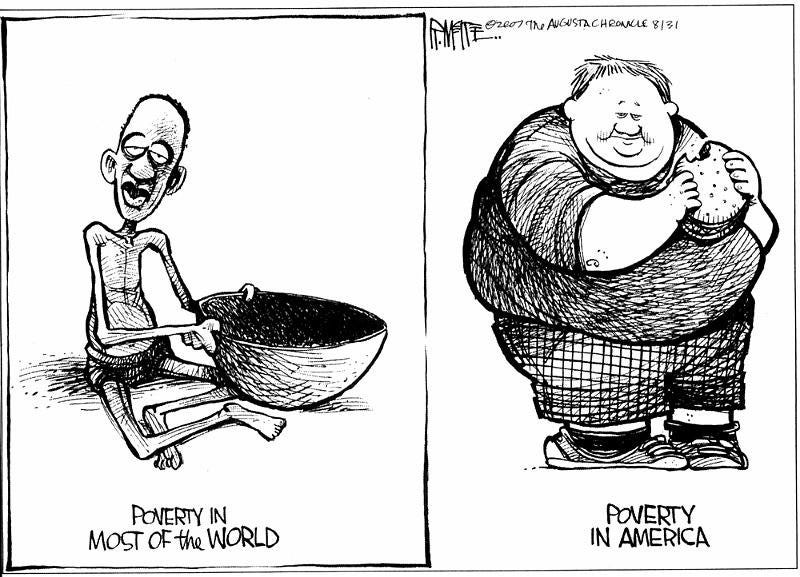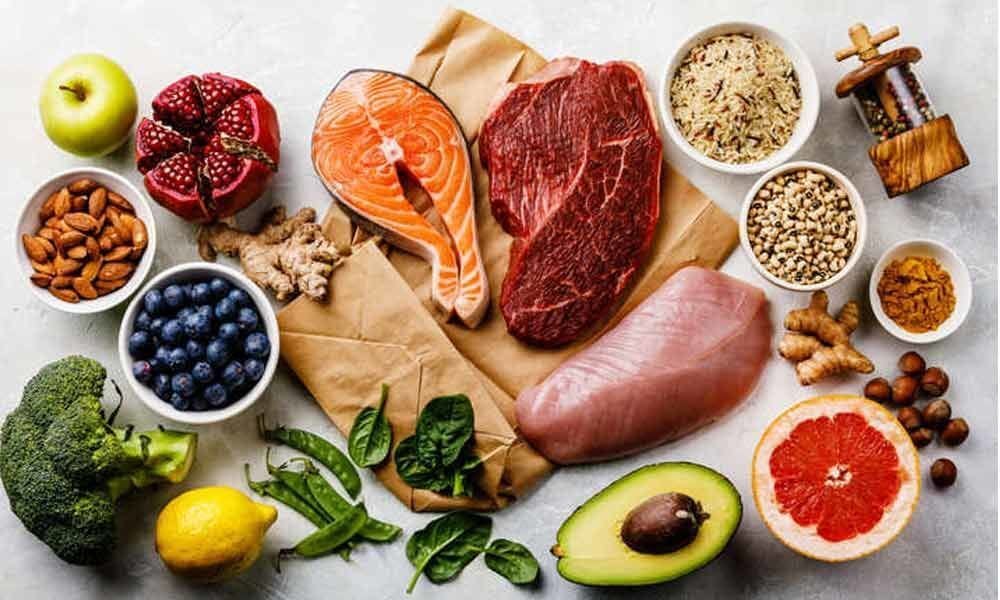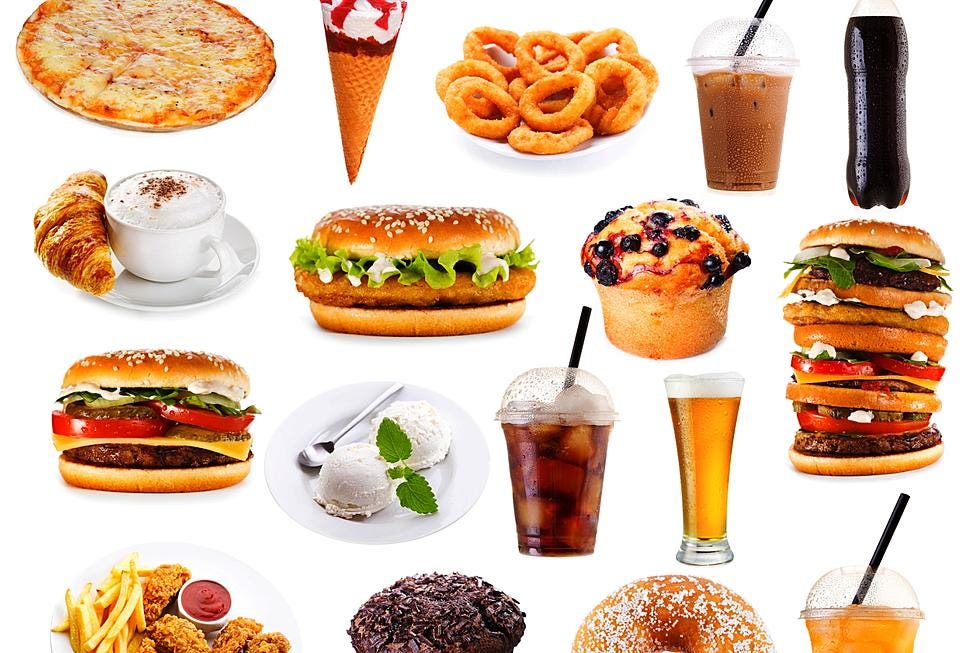Overweight is Undernourished
Add to Subtract: 1 + (-1) = 0
Millions of people every year make a commitment to lose weight, yet almost all have a difficult time sticking to it and the weight either stays on or after a brief interval rebounds back.
People try diet pills, supplements, prescription weight loss, crash diets, low-carb diets, high-fat-diets, high-protein diets, fasting diets, jogging, kettlebells, HIIT training, P90X – if there is one universal law of the weight loss industry it is that anything that can be sold will be sold.
Of course all of these approaches can trim your waistline, but none of them are truly sustainable because they are so unbalanced.
The problem isn’t lack of desire or commitment, it’s having the wrong paradigm.
So what’s the right way of looking at weight gain (I know, the title already gave it away) that can unlock a sustainable healthy weight, or more specifically a healthy body composition (the right amount of fat in the right places)?
Paradigm Shift
Excess weight is malnutrition or what might more accurately be termed perceived malnourishment.
In order to understand why you gain or keep excess weight you have to widen your definition of nutrition or what it means to be nourished.
Your body, mind, heart and soul are just names for different aspects of your self and they all need nourishment.
These aspects of self receive communication from the environment and communicate their needs back to us.
The messages we send to ourselves by the choices we make create the outcome we see: our body composition, mood, energy, enthusiasm, satisfaction and everything else.
If our whole self is not getting what it needs to thrive it will send signal flares back letting us know there is something missing.
But most people misinterpret the “hunger” signals being sent back to them and simply think they are hungry for physical food.
Which is why people tend to eat more when they are tired, stressed, thirsty, or even feeling unloved.
To be truly well nourished people need to balance their intellect with both ideas and daydreams, their hearts with both positive and negative emotions, their souls with both intimate connection and solitude, and their bodies with both food and fasting, movement and rest, sunshine and darkness, heat and cold, stress and relaxation.
Only when our whole self is truly nourished can our physical self stop taking the brunt of comprehensive malnutrition and itself settle into the healthy weight we’re all aiming for.
So in order to achieve sustainable weight loss it’s more important to focus on what needs to be added to your life than simply focusing on what needs to be subtracted in the form of calories.
There is science that connects all of these to body composition, but the simplest explanation is that all of these feed into our autonomic nervous system, which is what controls automatic functions like heart rate, breathing, and digestion. Good health requires balancing the two arms of this system: the sympathetic, fight or flight side with the parasympathetic rest and digest side.
Imbalances common in industrial societies lead to autonomic dysfunction in the form of too much sympathetic activity, and when this becomes chronic the stress hormone cortisol rises which makes us gain weight, while other slimming hormones like thyroid hormone and testosterone fall. At the same time appetite signals go up, healthy gut bacteria are replaced by unhealthy ones, and neuro-chemical levels go awry.
Food & Fasting
Of course it’s important to transition from refined foods with empty calories to whole foods, which have less caloric density, but more nutrient density, because part of our out of control hunger signals are due to a lack of food sourced micronutrients.
Intuitive eating is a way of reorienting our relationship with food. Connecting with our bodies to discover what foods actually nourish us and leave us feeling better as opposed to worse.
Making the connection involves not covering up the signals being sent back from our bodies: instead of chugging antacids, choosing to eat differently.
But why is it so difficult to change what we eat?
Food prep has moved from the kitchen to the food science lab where PhDs in chemistry, biology and psychology work together to make foods hyper-palatable, just the right amount of crunch followed by just the right amount of chew, and just the right combinations of sugar, fat, salt and artificially enhanced flavors make for irresistible “franken-foods”.
Thankfully a short period of just a few weeks avoiding these monstrosities that pass as food in our supermarkets and fast food outlets will serve to reset your taste buds, the neural pathways in your brain and even the bacterial colonies in your gut, that together drive our consumption choices.
You can often rediscover your natural inclination for real foods within a fortnight.
Any time you decide to make drastic changes, it pays to go easy on yourself, and one way that works for some is to force yourself to take a “cheat day” once a week where you go bonkers and eat whatever you want. This can prevent unexpectedly falling off the wagon and losing motivation.
After just 1-2 weeks of 6 clean days followed by a junk food day, you’ll find your appetite for trash will have diminished substantially, often to the point you can barely eat it without being sick.
At the same time if you start to balance out all the other areas of your life you will find it far easier to moderate your intake of food, so that you begin to eat to live, rather than the alternative which is eating to die.
A helpful hack is to eat with other people and begin to focus more on the social aspects of the meal rather than your taste buds.
Fasting is as important as eating, we aren’t grazing animals and our digestive systems need a regular break from food.
Movement & Rest
Some of us exercise too much and others too little. Many people end up overtraining and burning out.
Monitoring your physical progress, energy levels and susceptibility to injury can clue you in to whether you are overtraining and a helpful tool is monitoring your heart rate variability levels which start to decline when you over do it.
Obviously if you don’t move enough you need to move more - in any way you find enjoyable and sustainable, especially with other people. Learning a competitive sport is an easy way to fuel the desire to be active.
Periods of rest from exercise are important for optimal health, and the most important form of rest is regular high quality sleep.
Sleep is the only time our brain enters a healing state of autophagy - the cellular waste removal process. So optimizing sleep with proper “sleep hygiene” is of immense importance.
Light & Dark
The sun is a nutrient that is lacking for most people. We tend to think only plants photosynthesize, but that’s not the case.
We need sunlight to photosynthesize both vitamin D and serotonin.
And you can’t supplement your way out of a sunlight deficit, because sunshine does a lot more than simply create those micronutrients, it also activates mitochondria, changes the microstructure of the water in our blood, greatly improves our sleep, syncs our circadian rhythms, and has anti-inflammatory effects related to the near infrared spectrum.
Studies show those who get the most sun live far longer than those who get the least, and are far healthier.
At more northern latitudes winter sun will not carry the UVB spectrum light required to create vitamin D, so in those areas you need to get enough sun in the summer and then supplement with functional foods like cod liver oil to prevent depletion in the winter.
For circadian rhythms and optimal sleep being exposed outside to sun for 30 minutes before 10 am is necessary. For vitamin D production midday sun has the most intense UVB spectrum light.
As important as light is for health, darkness is just as important, and interestingly enough the modern world has banished sunlight as well as darkness and replaced both with artificial lighting.
After dark we need to avoid blue light to maintain adequate levels of melatonin for optimal sleep. This can be achieved with blue blocker sunglasses, or red lights like those used in areas where turtles migrate to the sea.
We are just as sensitive as those turtles to blue light after dark, we just don’t know it.
Heat & Cold
Another aspect of the natural environment that has been effectively banished for most of us by indoor air conditioning are daily temperature variations.
Our bodies do best with regular exposure to heat and cold - both of these induce autophagy - our bodies process of getting rid of cellular trash, as well as rebalancing the autonomic nervous system and having anti-inflammatory effects.
Cold exposure also boost levels of sparse, healthy brown fat that help burn the bulky, unhealthy white fat that pads our bellies and thighs.
Stress & Relaxation
Stress helps strengthen us in moderation, but too much leads to over activation of sympathetic pathways and long term alterations in hormone levels that make us fat.
Stress management has to be a regular part of our day to day lives and can include breath work, meditation, and meditative movement.
Sauna and cryotherapy also help you to relax.
Learning & Daydreaming
In the realm of intellect we are overwhelmed with a sea of information the likes of which mankind has never seen.
Information overload is stressful.
Balance here doesn’t mean more education, but being highly selective and even more importantly learning to turn our brains off every day: just zone out without an audio book, podcast, social feed, or phone call - what some might call meditation, in it’s extreme form the polar opposite of the busy monkey mind: i.e. the zen state of “no mind”.
This is easier to achieve than you might think. And yes there is an app for that, but just use it to learn if you must and then disconnect.
Fear & Hope
The heart is just that aspect of ourselves that feels emotion, you can consider it a part of your brain if you prefer, it’s just terminology for a reality everyone experiences.
Fear and hope simply represent positive and negative emotions, and like the two wings of a bird are both required for us to take flight.
Most of us have a preponderance of negative emotions, which trigger stress pathways and weight gain.
So finding balance in this realm for most people means making an effort to think positive.
The most powerful positive emotion is love, but the easiest positive emotion to experience on purpose is gratitude.
You can practice gratitude for what you have, or while imagining having what you want, they are both quite pleasurable, the second surprisingly more so than the first.
On the other hand if you tend to cover up or bury your negative emotions then you may need to learn to experience them in a healthy way and let them go.
Socialization & Solitude
Finding social balance means realizing that human beings need social connection, regardless of how much of a loner you may think you are, but we also need solitude.
Some people tend more towards one or the other extreme here, but both are important for balance.
Solitude is a chance to reconnect with your self and the context of your existence, it can be used for meditation and worship.
For those who tend to be loners it’s important to realize that greater social connection correlates with positive health & emotional outcomes and longevity.
Everyone needs to cultivate intimate friendships, if not romantic intimacy as well as a wider social sphere of community relationships.
For those who already have friends or loved ones, it’s important to go beyond surface connection and develop real intimacy.
One way of doing this is by opening up and sharing secrets.
One study showed increased intimacy could be achieved in just 45 minutes by asking and answering 36 questions followed by staring into each others eyes without speaking for 4 minutes - choose wisely who you do this with!
Abundance vs Poverty
Some of this may already come easy to you and some of it may be a tall order.
But it doesn’t have to be hard. Baby steps can get anyone where they need to be.
The more you add to your life the more abundance you’ll feel and the less your body will cry out for calories or hold on to excess weight.











